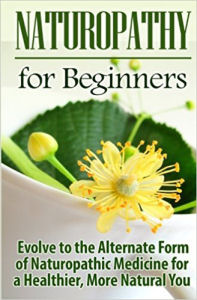What Is Naturopathy?
Naturopathy - also referred to as naturopathic medicine - is a system of medicine based on the healing power of nature. It is considered a holistic form of healing in that naturopathic doctors attempt to find the cause of a disease by understanding the patient from the perspectives of mind, body and spirit.
Naturopathy - A Brief History
The term "naturopathy" was created just prior to the 20th century, and has commonly been attributed to Benedict Lust, a German immigrant, who introduced the therapy to the United States and founded the first naturopathic institution, the American School of Naturopathy, in New York in 1902. The school emphasized methods such as natural cures, proper bowel habits, nutrition, dietary and lifestyle changes, and good hygiene to help obtain optimal health. Based in large part to Lust's efforts, naturopathy gained much promotion and legitimacy, with licensing laws being passed in several states in the 1920s and 1930s.
In the 1940s, the popularity of naturopathy began to decline, due in part to Lust's death, along with in-fighting between various schools of natural medicine and improvements in conventional medicine's technology and political power. Many naturopathic colleges were forced to close, and some states either repealed naturopathic laws or limited the types of procedures naturopaths could perform.
Interest in naturopathy began to increase in the next few decades. In 1956, the first modern naturopathic institution, the National College of Naturopathic Medicine, opened in Portland, Oregon. Today, there are several naturopathic schools operating throughout the country. In addition, the number of states that have recognized the ability of naturopaths to practice has increase significantly in the past 25 years. Currently, 14 states (Alaska, Arizona, California, Connecticut, Hawaii, Idaho, Kansas, Maine, Montana, New Hampshire, Oregon, Utah, Vermont, and Washington), along with the District of Columbia, Puerto Rico and the Virgin Islands, regulate the practice of naturopathy. Several Canadian provinces also license naturopathic practitioners.
What to Expect on Your First Visit
A visit to a naturopath is quite similar to a visit to a family doctor or general practitioner. An initial visit may take up to an hour or more, and almost always includes a detailed patient health history. A naturopath may ask questions about diet, lifestyle, stress factors, and other issues. A naturopath will also perform a comprehensive physical examination, which may include certain laboratory and diagnostic tests.
Naturopaths are trained to offer a wide range of treatments. Depending on his or her education and training, a naturopath may offer nutritional counseling, herbal remedies, homeopathic formulas, acupuncture and traditional Chinese medicine, hydrotherapy, physical medicine (such as touch, hot and cold compresses, and ultrasound), detoxification, and lifestyle counseling.
Naturopathy for Beginners: Evolve to the Alternate Form of Naturopathic Medicine for a Healthier, More Natural You
Evolve to the Alternate Form of Naturopathic Medicine for a Healthier, More Natural You
Naturopathy has proven itself to be as effective, but not as damaging, as any other modern treatment. It is a type of alternative medicine that does not use modern drugs and chemicals. Practitioners of naturopathic medicine believe that the body has the power to heal itself without the intervention of chemicals. The body already has the necessary instruments to become healthy; it just needs to know how to use them.
Naturopathy includes a wide variety of natural treatments and uses a holistic approach to any medical affliction. This type of alternative medicine combines authentic knowledge with the discoveries of modern science and brings a new way of treating the body without risking long term injury.
The roots of naturopathy go back thousands of years, and since ancient times, people have used the benefits of nature to maintain their health. The procedures are meant to be as minimally invasive as possible. Surgery and modern medicine are recommended only in extreme cases. Otherwise the body’s energy, together with natural ingredients, is all that is needed to heal almost any disease. Additionally, naturopathy emphasizes the importance of careful prevention, rather than desperate treatment.